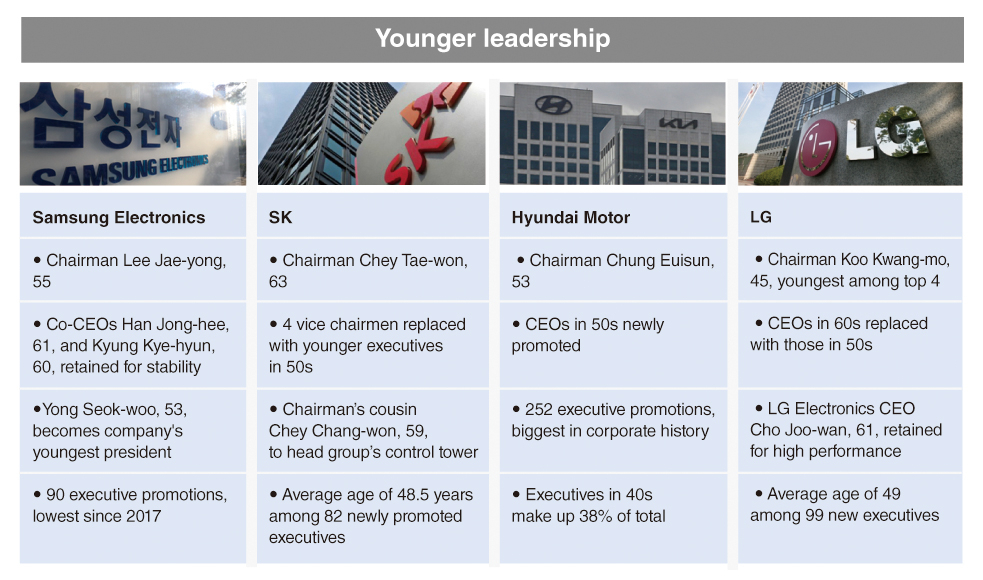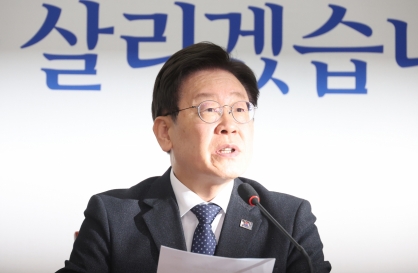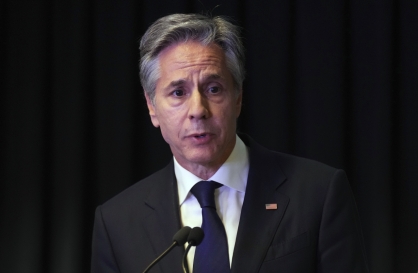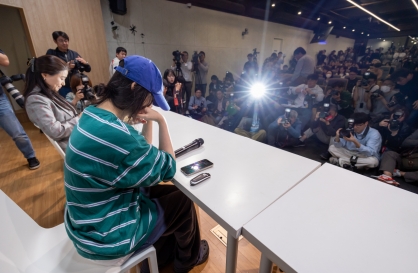 |
(Getty Images Bank) |
“Generational shift” has long been a buzz phrase in the year-end leadership reshuffle at Corporate Korea for years. 2023 was no exception.
The nation’s conglomerates, especially the top four, have touted having promoted younger executives to breathe fresh air into somewhat rigid operations and prepare for the next growth drivers in the ever-evolving business environment.
Many of the CEOs in their 60s stepped down to be replaced by those in their 50s, while managers in their 40s were promoted to executive titles.
But both company officials and experts are still reluctant to call the younger leadership a generational shift in its literal sense in Korea as the corporate rhetoric is also part of the long-held chaebol system.
Younger for future
“Young leaders and specialists in software and other advanced technology sectors were promoted to speed up the company’s generational shift,” Samsung Electronics, the country's largest conglomerate, said as it announced 90 executive promotions, the lowest since 2017, in late November.
Among the newly promoted was Yong Seok-woo, 53, the youngest-ever president in charge of the TV business, one of the tech giant’s key business divisions.
Samsung retained the co-CEOs in their 60s -- Vice Chairmen Han Jong-hee, 61, and Kyung Kye-hyun, 60 -- who handle appliance and chip businesses, respectively, citing growing uncertainties in global markets.
SK Group, the country’s second-largest conglomerate, sought a radical change in its top brass, replacing CEOs at seven key affiliates with those in their 50s or 40s.
The leadership revamp came after Chairman Chey Tae-won warned of “sudden death” at a CEO meeting in November, calling for heightened readiness for the fast-changing business environment.
Hyundai Motor Group promoted CEOs in their 50s. Largely buoyed by upbeat sales, the world’s third-largest carmaker carried out the biggest executive promotions of 252 in its corporate history, of whom those in their 40s made up almost 40 percent.
LG Group also replaced many of the CEOs in their 60s with those in their 50s. LG Electronics CEO Cho Joo-wan, 61, survived the performance-based reshuffle. The average age of the 99 new executives was 49.
 |
(Graphic by The Korea Herald) |
Younger chaebol leaders
A public relations official at one of the big four groups admitted that the rhetoric for a generational change simply means new figures replacing the existing ones, citing little age difference among them, usually less than a decade apart.
“I believe it will be almost impossible for the large-size behemoths in Korea to pursue generation shift in the literal sense, like to kick out all those in the 50s and 60s and bring in those in their 20s and 30s,” the official said under the condition of anonymity.
Another official also noted how the average age of newly promoted executives of his company has been hovering at mid- to late-40s for years.
Cho Myeong-hyun, a business professor at Korea University and the former president of Korea Corporate Governance Service, said that family-owned chaebol groups are increasingly putting renewed emphasis on generational shift as part of their succession schemes for the third- and fourth-generation scions of the founding families.
“The rhetoric gives them the reason to fill the top brass with younger leaders, considering their chaebol chiefs may feel uncomfortable working with CEOs who are older than them,” he said.
Samsung Electronics Chairman Lee Jae-yong, 55, SK Group Chairman Chey Tae-won, 63, and Hyundai Motor Group Executive Chair Chung Euisun, 53, are all third-generation leaders of the founding families, while LG Group Chairman Koo Kwang-mo, 45, is a fourth-generation leader and the youngest among the top four chaebol leaders.
“Some executives are known to dye their hair regularly or visit a dermatologist because they do not want to look too old to carry out their duty at work,” Cho added.
With the succession schemes speeding up for younger generations of chaebol families overall, the executive age at major conglomerates is likely to drop further in the future, experts said.
According to a survey by Leaders Index, a local corporate tracker, chaebol scions usually become executives in their mid-30s. They are found to assume leadership roles at an average age of 42.1.
The nation’s rigid labor law is also behind the generational shift rhetoric, according to Cho.
“It is a lot more difficult to fire employees in Korea, compared to the US and other Western countries,” he said. “Big companies have tens of thousands of employees and they have to carry out large-scale costly promotions every year. They can effectively reduce high-paid top executives in the name of a generational shift.”
Younger the better?
Industry people, however, agree that wide use of the term “generational shift” shows how the public positively views the idea of young leaders.
"I believe it helps big companies erase their reputation of being rigid when they say they have young top brass, it sounds like they are more open, and fast to adapt to new ideas," said a company official who wished to be unnamed.
Kim Yong-jin, a business professor at Sogang University, noted that the corporate rhetoric needs to be taken more seriously and that the generational shift is "more than age.”
Older generations of business leaders, Kim said, had nurtured their management skill sets centering mostly on manufacturing sectors during the nation’s high-growth era. But he stressed that now the industrial paradigm is fast shifting to digital technologies and services.
“Leaders born in the late 1960s and the early 1970s are better trained on the new paradigm shift. They must take the helm at key business divisions,” he said.
“At this time of business convergences and M&As, new leaders, regardless of their age, should pursue values of creativity and horizontal work culture for sustainable growth.”
The changes in Korea’s corporate culture has been slow but sure. The top two internet companies here, Naver and Kakao, have even younger CEOs. Naver CEO Choi Soo-yeon is 42, while Kakao’s new CEO nominee Chung Shin-a is 48.
Meanwhile, older leaders appear to be favored globally.
According to a study by Penn's Wharton School of Management released in December, the average age of C-suite executives at Fortune 100 companies was 57, the same as it was 40 years ago.
The new C-suite is "older, with broader industry experience and increasingly female," wrote Wharton professor Peter Cappelli in the study.
The average hiring age of CEOs at Fortune 500 and S&P 500 companies also showed a dramatic rise over the past two decades, from 46 to 55.
“A good leader would understand the benefits of diversity in leadership. Diversity does not only mean the inclusion of different races and genders, but also of ages. Intergenerational leadership will help keep balance for businesses," Cho of Korea University said.







![[Weekender] How DDP emerged as an icon of Seoul](http://res.heraldm.com/phpwas/restmb_idxmake.php?idx=644&simg=/content/image/2024/04/25/20240425050915_0.jpg)